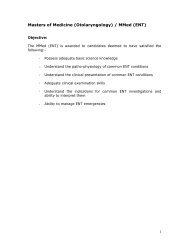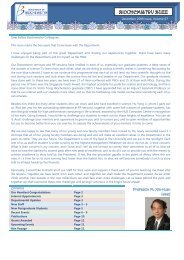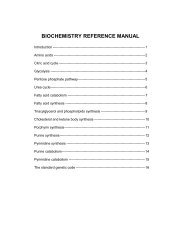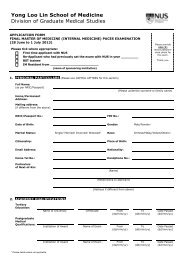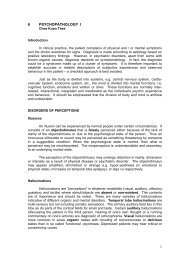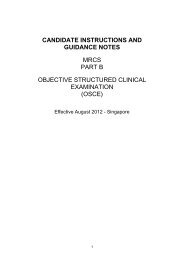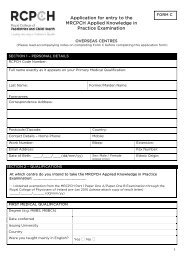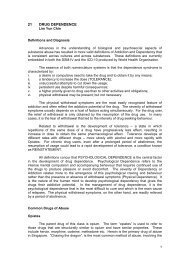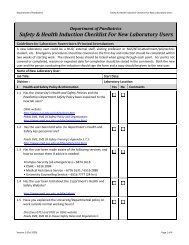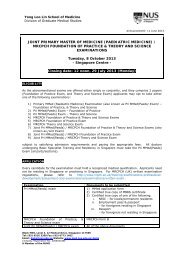FORENSIC PSYCHIATRY
FORENSIC PSYCHIATRY
FORENSIC PSYCHIATRY
Create successful ePaper yourself
Turn your PDF publications into a flip-book with our unique Google optimized e-Paper software.
No one with any fiduciary relationship to the patient should sign any order under the<br />
Act. Discharge from the hospital can take place once the patient is considered fit by the<br />
psychiatrist.<br />
B. Consent to Treatment<br />
For medical (psychopharmacological) treatment of psychiatric patients, no formal<br />
consent is obtained and is implied if no objections are made. If the treatment is necessary<br />
but there is refusal because of impaired judgement arising from illness, the patient can be<br />
made an involuntary patient and treated.<br />
For electroconvulsive therapy (ECT), permission should be sought from all patients<br />
who are able to understand and give consent after explanation. If the patient is not<br />
competent to give consent, this can be obtained from the next of kin or an immediate family<br />
member. If none is available then a second opinion and concordance should be sought from<br />
another consultant psychiatrist.<br />
Sometimes, the psychiatrist is consulted regarding whether a mentally ill individual is<br />
able to give consent for a surgical procedure. Provisions governing consent to medical<br />
treatment in Singapore is found in sections 87-92 of the Penal Code. In essence, it requires<br />
that a person giving consent is able to understand the nature and consequence of the<br />
procedure. As far as possible the patient should give his own consent.<br />
Some mental conditions fluctuate in severity and consent may be obtained during a<br />
lucid period, as long as he is, at the time able to understand the nature of the operation, the<br />
risks involved and consequences. If the patient is unable to give consent, the next-of-kin can<br />
give consent on his /her behalf. In the event of emergencies, a procedure done in good faith<br />
for a person who is unable to give consent, is not considered an offence provided it is for the<br />
purpose of treatment.<br />
C. Civil Laws<br />
Civils laws concern the rights and obligations of individuals to one another and deal<br />
with matters like property and inheritance or contracts.<br />
Psychiatric input is sought at times concerning fitness to make a will, validity of<br />
marriage contracts or guardianship, or capacity to manage one’s own affairs.<br />
1. Testamentary Capacity<br />
This refers to an individual’s capacity to make a will. A will made by someone with<br />
mental illness may be challenged by potential beneficiaries who query its validity. Psychiatric<br />
opinion about whether a person is of “sound disposing mind” would entail assessing if the<br />
person knows:<br />
a) What a will is and what the consequences of it are.<br />
b) The nature and extent of his property.<br />
c) Who the potential beneficiaries are.<br />
2






